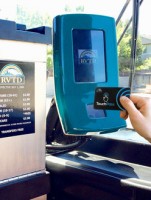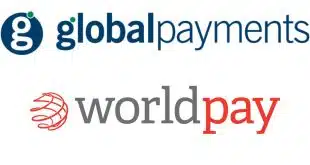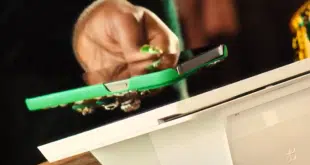The subscription model is coming to payments for transit fares. Delerrok Inc., a transit fare-system provider, launched TouchPass this week, a fare-collection service that transit operators pay for via a subscription.
TouchPass, a product of transit veterans Bob Hamilton, Gary Yamamura, and Susumu Kusakabe, who is a patent holder for near-field communication (NFC) technology, enables consumers to purchase fares on smart phones, in Web browsers, or at ticket windows. They can use these tickets via a smart card, mobile app, or inexpensive barcode tickets. Eventually, support will be added for EMV contactless smart cards, which will enable mobile phones, such as an iPhone, to be used, Yamamura says.

“We’re hardly the first to come up with the concept of offering subscription-based service,” Yamamura tells Digital Transactions News. “We’re the first to apply it intelligently to fare collection.”
TouchPass is a cloud-based service that requires transit operators to install compatible readers on their busses or train gates, he says. The fare policies and rates are loaded into Delerrok’s system. That software distinction is key, Yamamura says. Most transit-system vendors build the hardware for agencies to install. TouchPass uses standard devices that can have NFC readers and quick-response code scanners.
“The agency doesn’t need to download anything,” Yamamura says. “They only need the reader. The readers connect to our platform. The passengers connect to our platform using a networked device.” The service is an account-based one, meaning that one day a traveler could use a single account across multiple TouchPass-using transit agencies, he says.
Once a transit agency decides to use TouchPass, which has been tested by the Rogue Valley Transportation District in Medford, Ore., its fare policies are configured in Delerrok’s system. Once that’s complete and the readers are installed, the connections are made and the agency can begin issuing cards, Yamamura says. Delerrok supplies the cards, but their costs are a pass-through to the agency, he says.
Of course, Delerrok will make a fee, but Yamamura says details are not available yet. “It will be a tiered structure.” Because the service is cloud-based, it is affordable to smaller agencies wanting to use electronic fare collection, he says.
Yamamura says the prospects for the service are immense. Out of almost 1,000 transit agencies in North America that offer fixed-route services, like buses, “the best is about 250 have an electronic fare-collection system,” he says. “There are plenty of opportunities.”
Delerrok’s service is different from what Cubic Transportation Systems, a unit of Cubic Corp., licensed last year from Transport for London. The TfL technology enables riders to use a contactless card bearing a payment card brand. “It’s a different animal than us,” Yamamura says. He characterized the number of consumers actually using a payment card as a fare instrument as “small.” The demand is not such that it will be a default solution for everybody, he says.





